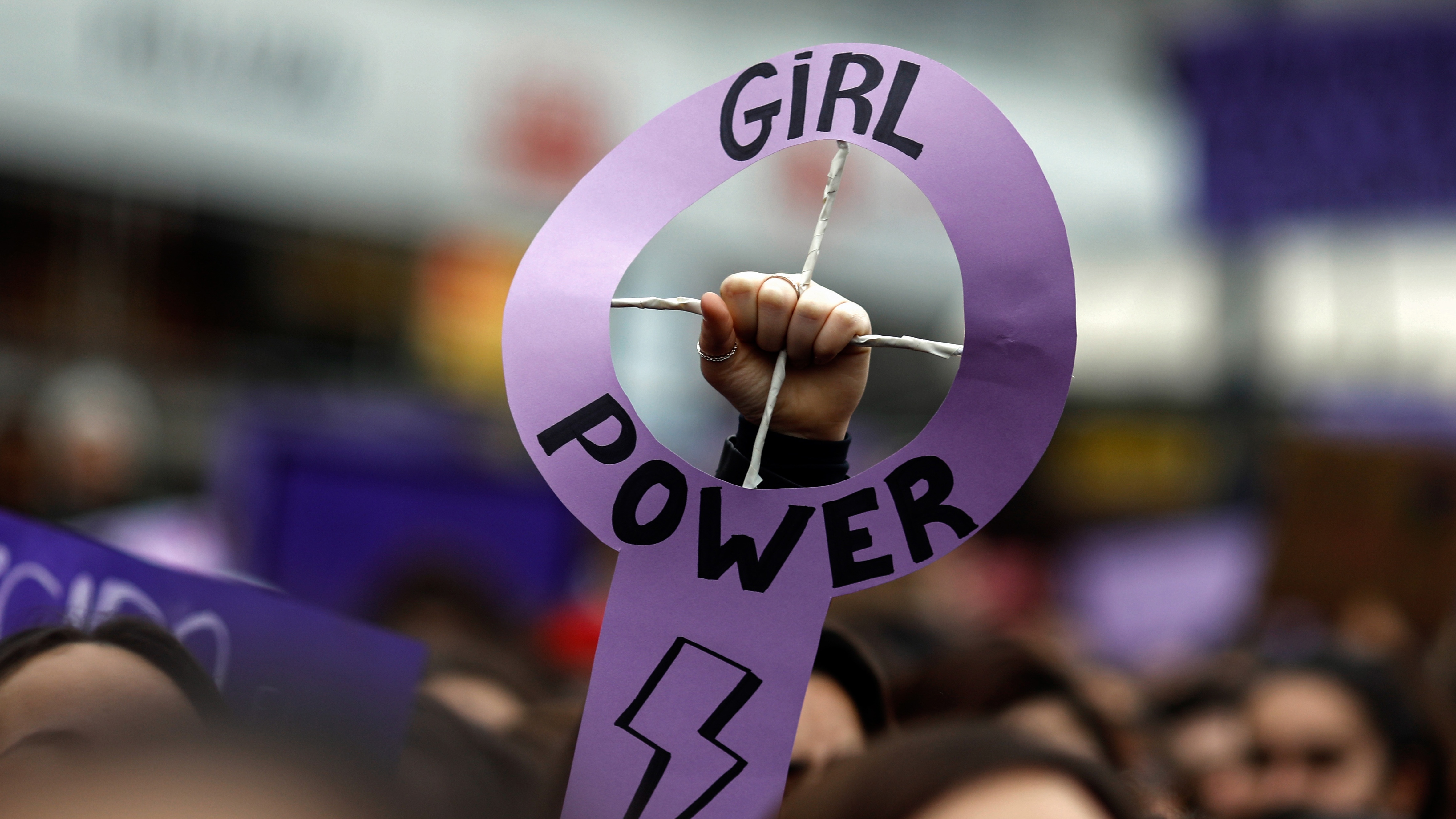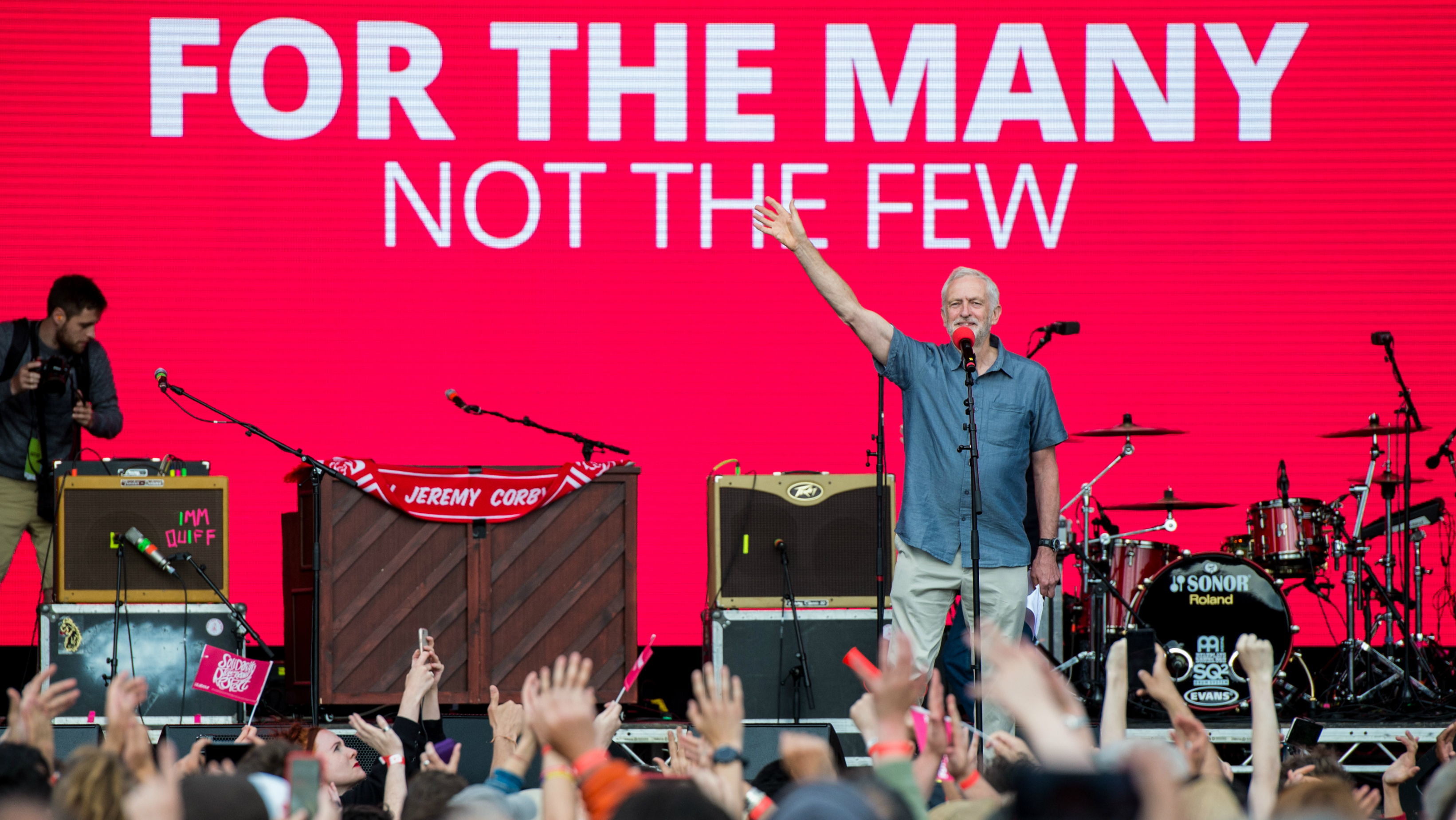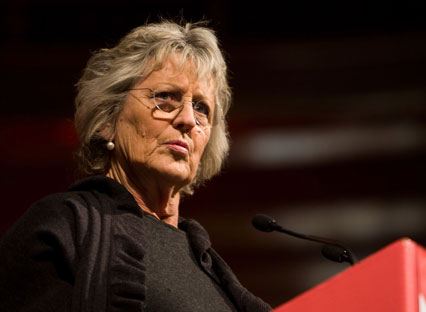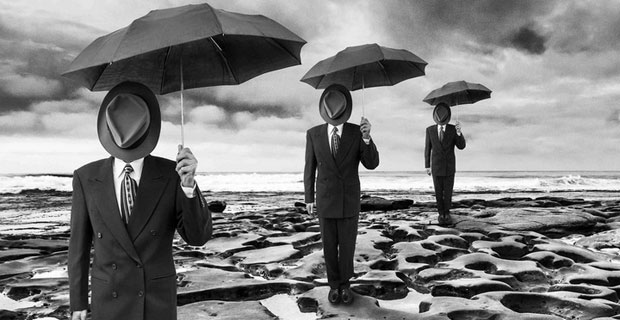New Battle of the Sexes will only end when internet grows up
Kirsty Wark documentary addresses online abuse but fails to tackle the witless misogynists

A free daily email with the biggest news stories of the day – and the best features from TheWeek.com
You are now subscribed
Your newsletter sign-up was successful
HAS technology forced feminism onto the back foot and unleashed a new tide of misogyny? In Blurred Lines: The New Battle of the Sexes, Kirsty Wark seemed curiously reluctant to answer the question she posed with such urgency at the beginning of the BBC2 documentary.
She criss-crossed the country collecting examples of online abuse, some of them deeply unpleasant, but the programme as a whole lacked a sense of direction. It gathered a lot of evidence, but failed to make a case.
Perhaps BBC notions of even-handedness prevented a more polemical approach, or perhaps the programme simply lacked focus. At one point it seemed to blame Britpop and lads’ mags for the rising tide of misogyny, before switching its attention back to online culture.
The Week
Escape your echo chamber. Get the facts behind the news, plus analysis from multiple perspectives.

Sign up for The Week's Free Newsletters
From our morning news briefing to a weekly Good News Newsletter, get the best of The Week delivered directly to your inbox.
From our morning news briefing to a weekly Good News Newsletter, get the best of The Week delivered directly to your inbox.
Even then, it failed to distinguish between cases where the internet has laid bare behaviour that would have occurred anyway, and those in which new ways to communicate have generated new forms of abuse.
Examples of the latter are all too numerous, from the online vitriol directed towards Caroline Criado-Perez when she campaigned for Jane Austen to appear on the £10 note, to the vicious personal insults – and threats of rape – that are all too common on Twitter and in other web forums.
Wark did not speak to anyone who admitted to such behaviour, but her quest for balance led her to Brendon Burns, a comedian who has gained some notoriety for telling jokes about rape.
“Once you’re fair game, that’s when you’re truly equal,” he says. “Once you exclude any section of society from having a sense of humour about themselves, then you exclude them full stop.”
A free daily email with the biggest news stories of the day – and the best features from TheWeek.com
There is, however, a difference between making a joke at one’s own expense and putting up with someone else’s idea of a joke - and, more fundamentally, between joking about rape and threatening to carry it out. A distinction might also be drawn between what is acceptable within the confines of a comedy club, in front of an audience that knows what to expect, and what should be inflicted on the unsuspecting public.
Burns knows that - his Twitter account is blameless - but many of those who engage in online abuse seem to struggle with that boundary between public and private. They treat the online arena as an extension of their own imagination, a place where they can vent frustration and play out violent fantasies with no thought for the feelings of others and no fear of consequences.
Blurred Lines had no remedy for the problems it identified, but it did provoke others into venturing a solution.
Writing in The Times, Antonia Senior argues that women must get more involved in technology. “The risk is not from an obsession with our breasts or from anonymous trollers making jokes about Mary Beard,” she says. “The risk comes from our technological apathy; from our willing quiescence in the myth that computers are boys’ toys.”
Tech-savvy women will gain more power, the argument goes, and “misogyny only really matters to the powerless. With a good job, money in the bank, choices and a future, you can rise above anything; laugh in the face of hatred.”
It’s an admirable rallying cry, but what if it’s all the misogyny and hatred that keeps women out of the tech world in the first place?
One girl interviewed on Blurred Lines, an online gaming enthusiast, stopped playing games in the evening to avoid having to deal with the sex pests who came out after dark. When women retreat, the few that remain face all the more abuse.
To break that cycle, men too will have to play their part, challenging casual sexism and shunning those who inflict it on others - as many already do.
They will be accused of humourlessness and political correctness and all the other charges levelled at those trying to establish basic standards of decency and respect, but then the centre of gravity will shift and those who persist in their abuse will be exposed and outnumbered.
In too much of the virtual world, witless misogynists shout the longest and loudest. As the internet matures and moves out of its adolescent phase, it is time for that ugly roar to be silenced. Only then will digital culture realise its potential for vibrant debate, alive with diverse voices.
Blurred Lines: The New Battle of the Sexes is available on the BBC iPlayer
Holden Frith tweets at twitter.com/holdenfrith
Holden Frith is The Week’s digital director. He also makes regular appearances on “The Week Unwrapped”, speaking about subjects as diverse as vaccine development and bionic bomb-sniffing locusts. He joined The Week in 2013, spending five years editing the magazine’s website. Before that, he was deputy digital editor at The Sunday Times. He has also been TheTimes.co.uk’s technology editor and the launch editor of Wired magazine’s UK website. Holden has worked in journalism for nearly two decades, having started his professional career while completing an English literature degree at Cambridge University. He followed that with a master’s degree in journalism from Northwestern University in Chicago. A keen photographer, he also writes travel features whenever he gets the chance.
-
 6 exquisite homes with vast acreage
6 exquisite homes with vast acreageFeature Featuring an off-the-grid contemporary home in New Mexico and lakefront farmhouse in Massachusetts
-
 Film reviews: ‘Wuthering Heights,’ ‘Good Luck, Have Fun, Don’t Die,’ and ‘Sirat’
Film reviews: ‘Wuthering Heights,’ ‘Good Luck, Have Fun, Don’t Die,’ and ‘Sirat’Feature An inconvenient love torments a would-be couple, a gonzo time traveler seeks to save humanity from AI, and a father’s desperate search goes deeply sideways
-
 Political cartoons for February 16
Political cartoons for February 16Cartoons Monday’s political cartoons include President's Day, a valentine from the Epstein files, and more
-
 ‘Equality seemed simple, so we underestimated how revolutionary such changes would be’
‘Equality seemed simple, so we underestimated how revolutionary such changes would be’Instant Opinion Your digest of analysis and commentary from the British and international press
-
 Instant Opinion: Corbyn, not Johnson is ‘Britain’s Donald Trump’
Instant Opinion: Corbyn, not Johnson is ‘Britain’s Donald Trump’In Depth Your guide to the best columns and commentary on Thursday 14 November
-
 Germaine Greer: ‘rape is rarely a violent crime’ and four other controversial quotes
Germaine Greer: ‘rape is rarely a violent crime’ and four other controversial quotesIn Depth Feminist academic tells Hay Festival that most so-called sex attacks are ‘just lazy, careless and insensitive’
-
 Emma Watson's topless controversy: What's it all about?
Emma Watson's topless controversy: What's it all about?In Depth Actor 'quietly stunned' by reaction to Vanity Fair photoshoot showing her baring her breasts
-
 Men's rights movement: why it is so controversial?
Men's rights movement: why it is so controversial?In Depth Activists claim to fight discrimination against men, but critics argue they're apologists for misogyny